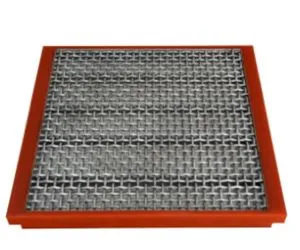Stainless steel screen plates stand as stalwarts in the realm of screening technology, revered for their exceptional durability, versatility, and performance across a wide range of industries. From mining and aggregates to food processing and pharmaceuticals, stainless steel screen plates play a pivotal role in ensuring efficient and reliable material separation. In this article, we delve into the myriad advantages of stainless steel screen plates, exploring why they are the material of choice for critical screening applications.
1. Unmatched Durability:
At the core of stainless steel screen plates lies their unparalleled durability. Constructed from corrosion-resistant stainless steel alloys, these screen plates exhibit exceptional resistance to rust, corrosion, and abrasion, even in the harshest operating environments. This durability ensures prolonged service life, minimizing downtime and maintenance costs, and maximizing operational efficiency.
2. Superior Corrosion Resistance:
Stainless steel screen plates are renowned for their resistance to corrosion, making them ideal for applications where exposure to moisture, chemicals, or harsh environments is prevalent. Unlike other materials that may succumb to rust and degradation over time, stainless steel screen plates maintain their integrity and performance, ensuring consistent screening results and product quality.
3. High Strength-to-Weight Ratio:
Despite their robust construction, stainless steel screen plates boast a high strength-to-weight ratio, offering exceptional strength and durability without adding unnecessary bulk or weight to screening equipment. This lightweight yet sturdy design enhances ease of handling, installation, and transportation, streamlining operations and reducing logistical complexities.
4. Excellent Hygienic Properties:
In industries such as food processing, pharmaceuticals, and sanitary applications, maintaining strict hygiene standards is paramount. Stainless steel screen plates are inherently hygienic, featuring smooth, non-porous surfaces that are easy to clean and disinfect. This ensures compliance with regulatory requirements and minimizes the risk of contamination, safeguarding product integrity and consumer safety.
5. Versatility and Adaptability:
Stainless steel screen plates offer unparalleled versatility, catering to a wide range of screening applications and material types. Available in various mesh sizes, configurations, and surface finishes, stainless steel screen plates can be customized to meet specific requirements, from fine particle separation to heavy-duty scalping. This adaptability makes them suitable for diverse industries and operational conditions, ensuring optimal performance and efficiency.
6. Thermal Stability:
Stainless steel screen plates exhibit excellent thermal stability, retaining their mechanical properties and performance characteristics across a broad temperature range. Whether subjected to extreme heat or cold, stainless steel screen plates maintain their structural integrity, ensuring reliable screening operations in environments with fluctuating temperatures.
7. Environmental Sustainability:
As sustainability becomes increasingly important in modern industry, stainless steel screen plates offer inherent environmental benefits. Made from recyclable materials and designed for long-term durability, stainless steel screen plates contribute to resource conservation and waste reduction. Additionally, their longevity minimizes the need for frequent replacements, further reducing environmental impact and lifecycle costs.
In conclusion, stainless steel screen plates stand as epitomes of durability, reliability, and versatility in the realm of screening technology. From their unmatched corrosion resistance and hygienic properties to their lightweight design and environmental sustainability, stainless steel screen plates offer a host of advantages that make them indispensable in a wide range of industries. As businesses strive for efficiency and excellence, stainless steel screen plates remain steadfast allies, ensuring optimal performance and durability in critical screening applications.






